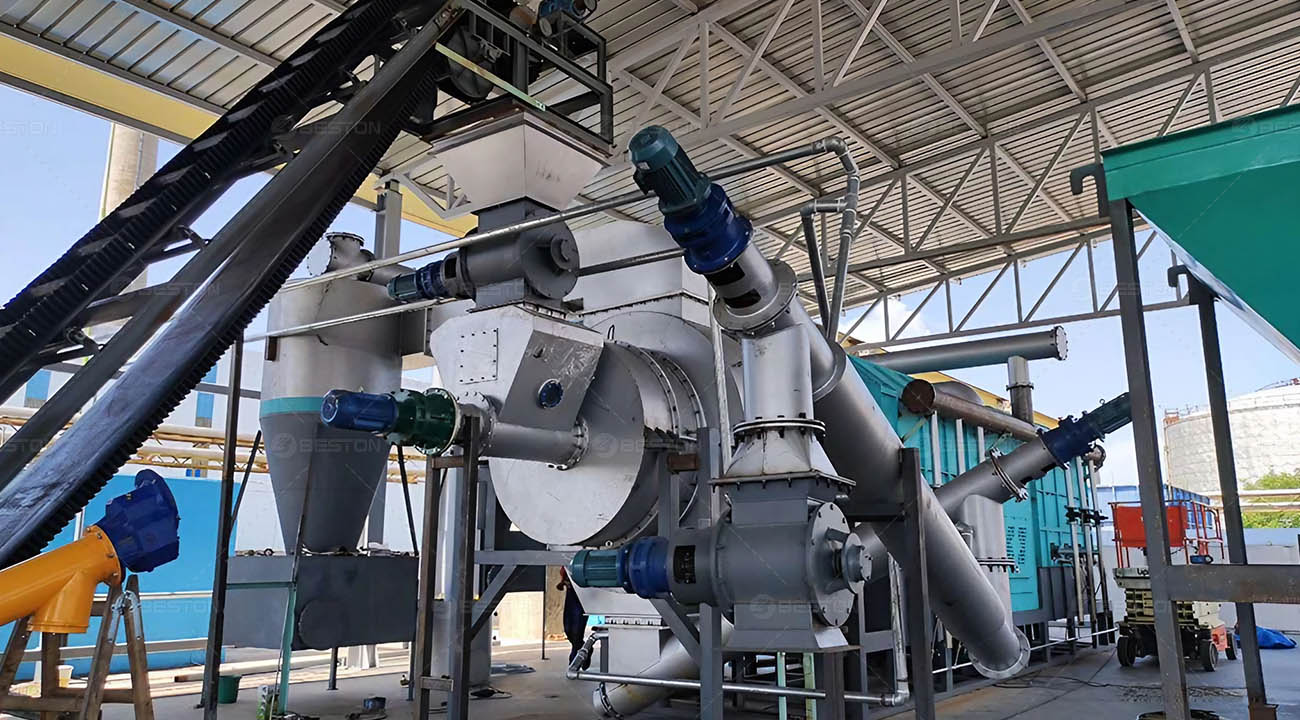In the realm of sustainable technologies, the innovation of mobile biochar production equipment stands as a testament to the fusion of mobility and eco-friendly practices. This article delves into the technical intricacies and environmental benefits of these portable systems, reshaping the landscape of biochar production.
Unveiling the Dynamics of Mobile Biochar Production
-
Innovative Portable Systems: At the heart of this green revolution lies the innovative design of mobile biochar production equipment. Unlike traditional stationary setups, these portable systems are engineered for flexibility and on-the-go efficiency. They bring biochar production to diverse locations, maximizing resource utilization.
-
Pyrolysis Unleashed: The process revolves around pyrolysis, a thermal decomposition technique optimized within mobile biochar production equipment. This controlled heating in the absence of oxygen transforms biomass into biochar, a stable carbon-rich product with versatile applications.
-
Mobility Redefined: The mobility factor of these systems redefines the scope of biochar production. Whether in remote agricultural areas, forestry sites, or post-harvest locations, mobile biochar production equipment adapts to the environment, minimizing the need for biomass transportation.
Technical Marvels: Inside the Mobile Biochar Production Equipment
-
Compact Reactor Design: The compact design of the pyrolysis reactor is a hallmark of mobile biochar production equipment. It ensures efficiency in heat distribution and biochar formation while maintaining the portability essential for on-site operations.
-
Efficient Heat Recovery: Modern systems prioritize heat recovery mechanisms. Mobile biochar production equipment incorporates efficient heat exchangers to capture and repurpose excess heat, maximizing energy efficiency and minimizing environmental impact.
-
Real-time Monitoring and Control: The integration of real-time monitoring and control systems is pivotal. Operators can optimize the pyrolysis process based on variables such as temperature, pressure, and feedstock composition, ensuring consistent and high-quality biochar production.
Advantages of Mobility in Biochar Production
-
On-Site Resource Utilization: Mobility allows mobile biochar production equipment to utilize biomass resources directly at the source. This on-site approach minimizes biomass transportation costs and reduces the overall ecological footprint of the biochar production process.
-
Tailored Solutions for Agriculture: In agriculture, the ability to deploy mobile biochar production equipment directly in the fields brings biochar benefits to the root of the issue. Farmers can tailor biochar applications based on specific soil and crop needs, fostering sustainable agricultural practices.
-
Forest Management and Wildfire Prevention: In forestry, these portable systems play a crucial role in forest management. They enable the conversion of woody biomass into biochar on-site, reducing the risk of wildfires by mitigating excess biomass accumulation.

Environmental and Economic Impact
-
Carbon Sequestration and Soil Enhancement: The primary environmental impact of mobile biochar production equipment lies in carbon sequestration. Biochar, when incorporated into the soil, acts as a stable carbon sink, enhancing soil fertility and mitigating greenhouse gas emissions.
-
Economic Viability for Biomass Suppliers: The mobility aspect creates economic opportunities for biomass suppliers. Mobile biochar production equipment allows them to process biomass at various locations, catering to diverse markets and contributing to the bioeconomy.
-
Versatile Biochar Applications: The biochar produced by these systems finds applications beyond agriculture. It serves as a valuable component in water filtration, livestock bedding, and even carbon sequestration projects, showcasing the versatility enabled by mobile biochar production equipment.
Challenges and Future Prospects
-
Feedstock Diversity and Processing Challenges: As these systems venture into diverse environments, addressing feedstock diversity and processing challenges becomes crucial. Ongoing research focuses on optimizing mobile biochar machine for different biomass compositions.
-
Integration with Renewable Energy Sources: The future outlook involves integrating mobile biochar production equipment with renewable energy sources. Solar or biomass-derived energy can power these systems, enhancing their sustainability and reducing reliance on conventional energy.
-
Global Adoption and Awareness: Spreading awareness about the advantages of mobile biochar production is essential for global adoption. Collaboration between industries, policymakers, and environmentalists can amplify the impact of these portable systems on sustainable practices worldwide.
Conclusion: A Mobile Revolution for Sustainable Biochar Production
In conclusion, mobile biochar production equipment represents a mobile revolution in the realm of sustainable technologies. The fusion of mobility, technical innovation, and eco-friendly practices propels biochar production to new heights. As these portable systems redefine the dynamics of on-site biomass utilization, they embody a future where environmental consciousness and technological progress harmoniously shape the path towards a more sustainable world.

Comments
No comments yet. Be the first to react!